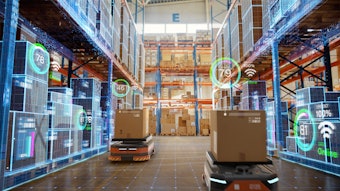
The U.S. implementation of reciprocal tariffs, effective April 2, is poised to trigger a significant protectionist shift with profound implications for international trade. In this evolving landscape, Mexico emerges as a prime beneficiary, attracting substantial investments and solidifying its status as a premier global manufacturing and logistics platform, according to analysis by MTM Logix.
In fact, the new U.S. tariffs will significantly impact trade flows, particularly affecting nations with high tariffs on American goods, including China, India, the European Union, and Southeast Asian countries. The tariff policy aims to align U.S. import duties with those imposed by these trade partners.
"With the introduction of reciprocal tariffs, we anticipate a dramatic shift in the dynamics of international trade, redirecting substantial U.S. import volumes from Asia and Europe to Mexico, thanks to the zero-tariff access guaranteed by the USMCA," says Mario Veraldo, CEO of MTM Logix.
Key takeaways:
- Key sectors such as automotive, electronics, medical devices, and textiles in Mexico are expected to experience significant increases in production demand. Particularly, the automotive industry is witnessing substantial investments from European and Asian companies looking to mitigate the impact of higher tariffs.
- With the anticipated surge in cross-border logistics demand, bottlenecks are expected, especially in northern Mexican industrial regions.
- Analysis projects that by 2028, Mexican exports to the United States could surpass $600 billion annually, positioning the country as the leading U.S. trade partner in manufactured goods.
"We are observing a historic transformation in the North American production chain. Global companies, facing increased tariff pressures, are already beginning to realign their production chains towards Mexico, accelerating processes that would typically take years. Mexico not only offers cost competitiveness but also unparalleled logistical proximity," says Veraldo. "It is crucial for Mexico to rapidly invest in logistics and energy infrastructure to support the projected increase in industrial production. The expansion of ports, railways, and highways is essential for this transition to be successful and sustainable in the long term. "This is not just a transient change. We are on the cusp of a new era where Mexico will solidify its position as a natural extension of the American industrial base, further enhancing the existing economic integration between the two nations.”

![Pros To Know 2025 [color]](https://img.sdcexec.com/files/base/acbm/scn/image/2025/01/Pros_To_Know_2025__color_.67856cb23da64.png?auto=format%2Ccompress&fit=crop&h=191&q=70&w=340)
























